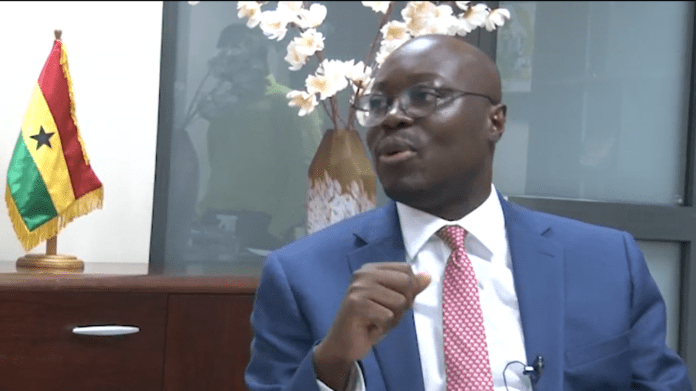The Minority Leader Dr Cassiel Ato Forson has said that the Minority will not accept a move by the Electoral Commission to stop using inedible ink in elections.
Dr Forson stated that indelible ink adds another layer to the integrity of elections by ensuring that voters are visibly, transparently, and physically verified in addition to biometric verification.
Speaking on the floor of Parliament on Tuesday February 6, he said, “Mr. Speaker, we will not countenance the elimination of indelible ink from the electoral process. We will not! Read my lips, we will not! Touch wood, we will not.”
The Minority Leader argued that the use of indelible ink during elections has been proven to be time-tested for identifying persons who have cast their vote, adding that it would be wrong on the EC’s part to eliminate it.
“The truth of the matter is that the use of indelible ink in our electoral process does no harm to the conduct of free and fair elections in Ghana. In fact, indelible ink adds another layer to the integrity of elections by ensuring that voters are visibly, transparently, and physically verified in addition to biometric verification.”
The Majority Leader Osei Kyei-Mensah-Bonsu also reiterated his call to the Electoral Commission not to abandon the use of indelible ink after stating that there could be multiple voting without the use of the indelible ink.
“The database of the Electoral Commission, as far as some of us do know, doesn’t talk to one another, the database of the regions talk to themselves. So, you cannot vote in Suame and then run to Offinso North to vote, you would be caught because there, it is synchronised but they don’t go beyond the regions.
“So, it is possible for one person to vote in Accra and dash to Bole to cast their vote. So, to the fact that the database is not talking to themselves, it is important that we further guarantee any abuse of the system to resort to the use of the indelible ink. So we are appealing to the EC to reintroduce it,” he said on Tuesday February 6.
Earlier, while speaking to TV3’s Beatrice Adu the Suame lawmaker said, “Another thing I think the EC may have to have a second look at is their discontinuance of the usage of inedible ink, I think they should go back and reconsider it.”
The EC announced that indelible ink will no longer be used in the district-level elections and subsequent polls. According to the Chairperson of the Commission, Jean Mensa, the decision is part of efforts to enhance the electoral process and establish a robust identification system.
She explained at a media briefing on Monday, December 18 that the biometric identification system flags anyone who attempts multiple registrations; hence, anyone verified after voting cannot vote again.
“The issue of indelible ink, the question is when we were not doing biometric, we were basically using your face, your card. We look at your face and we say this picture looks like you. The biometric technology makes it difficult for a person who has been verified and cast their vote to come a second time.
“So, there is no need for indelible ink. Once you have been verified, it goes into the system and you cannot come back a second time,” she said.
Mrs Adukwei Mensa, while also announcing the proposal to close polls at 3PM indicated that this would allow electoral officers to collate the votes in broad daylight to ensure transparency and orderliness.
Speaking during an inter-party dialogue and stock-taking conference organized by the National Peace Council in Accra on Thursday, December 14, she intimated that the proposal stems from the experience in the 2020 elections where about 70 percent of voting centres were empty by 1:00pm.
“In 2020, 70 percent of our polling centres had a voter threshold of 500 and below. This time we intend to ensure that all our polling station centers have a threshold of 500 voters and below. In the same vein, we will increase the number of our polling stations nationwide.
“We believe that this will go a long way to reduce the long queues that characterize our elections and allow for a smooth, seamless, hustle-free voting process. In 2020, it took voters not more than five minutes to cast their votes due to the introduction of this policy.
“Based on our 2020 experience and also feedback from several observer groups we propose to close the polls at 3:00pm.
“Our experience in 2020 reveals that by 1:00pm, 70 percent of our polling stations were empty of voters as most voters had cast their votes. This made it possible because the threshold of most polling centers was reduced to 500 voters per voting center.
“This was coupled with the robust verification devices that were deployed to the polling stations. We are convinced that by closing the polls at 3:00pm, we will be able to count and collate in broad daylight and this will promote the needed transparency and orderliness that we so desire,” Mrs. Mensa said.


